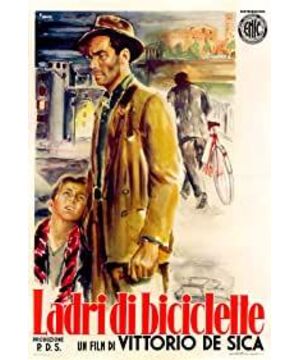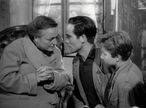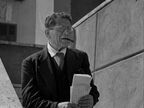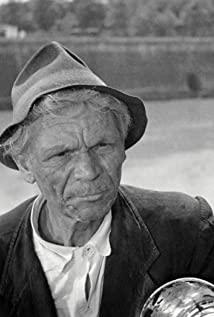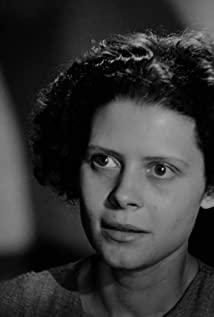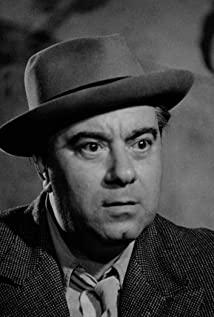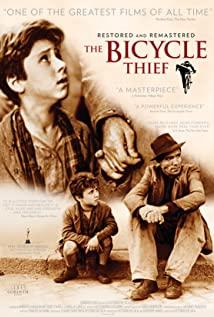The first wave is shame. The crowd was called into the empty conference room in full view. Whether it was persuasive or official business, under the great shock and shock, he would look dazed and dizzy. A short walkway turns into a "disgrace parade" in an instant, and it is polite to pack things quietly and leave; if a colleague comes to say goodbye, those comforting words with regrets and regrets, even if they are sincere and considerate, they are already deaf. The tone of his ears also changed instantly, alienated into the background noise of pity and mockery, making people confused and at a loss.
Next is denial. I can't think, I can't listen, my mind is blank, and there is a huge insurmountable gap between history and reality. After the mood calms down, I can't help but look back over and over again. Where did the wrong cause lead to bad luck? Is it fate or a small probability event? Maybe there is still room for maneuver? Maybe just stranded temporarily? Maybe it's a nightmare at all, wake up, wake up soon, nothing has happened yet, everything will still be as usual...
Denial is invalid, followed by depression. How can there be so much fate, it always makes people stumbling, one staggering and one somersault. Parents’ brows, peers’ eyes, and wives’ complaints, the sorrows in this world are truly endless and never reach the bottom. In the repeated self-denial and suspicion, it is inevitable to come to self-deprecating conclusions such as mediocre ability, dull personality, narrow and closed vision, and so on. It may not be blamed for others and self-defeating, but it is always a loss of confidence, scandalous face, depressed and unstoppable, and apathetic.
With such heavy material pressure and sharp psychological shock, how should an unemployed person face life? What kind of blind spots must the times and destiny push people to before they are willing to turn the pain into a lotus flower?
The representative work of Italian neo-realism, Ladri di biciclette (Ladri di biciclette), started when Antonio Ricci, who had been unemployed for two years, just got a job posting posters. Italy after World War II was devastated and struggling. The high unemployment rate plunged the entire Rome into poverty and panic. Every humble job was filled with countless people. Richie's job of putting up posters, which was so hard to come by, requires riding a bicycle, and the employer does not provide bicycles. In order to do this job, Rich's wife Maria used the only worthy dowry bed sheet in the family, and the family had to sleep on the mattress before redeeming the old bicycle that was previously pawned for food. For Rich, this broken car is the lifeblood of the family's livelihood, and the only sustenance and hope that can be relied on to change the destiny.
Rich’s six-year-old son Bruno regarded his father’s tattered bicycle as a treasure. He polished the car every day, and he remembered the small potholes in his heart, like a little man. Waved and complained that the pawnshop guys weren't caring enough about the car. He wrote all his admiration for his father on his face. In the early morning, both father and son wore coarse cloth overalls to go to work. Each of them put a mother's omelet for lunch in his upper body pocket, smiling brightly and energetic— —A brand new day, a day with work and income, is about to begin.
Compared to Bruno's innocence and cuteness, the character of Rich in the film has multiple levels. He was very excited when he first got a job, but when he heard that he had to have a bicycle, he immediately went crazy, sighed in front of his wife like a child, and waited for Maria to find a way for him. After the car was robbed, he was panicked. He also asked a friend who was a driver of the cleaning car to help him. As the hope fades away, his anxiety and despair become stronger and stronger. Until the end, the ability to find a bicycle is not only a necessity for livelihood issues, but also the dignity and image of a father in the eyes of a child. And when this dignity suffered an unprecedented blow in the face of a ruthless life, his frustration directly evolved into anxiousness, and the innocent little Bruno became a punching bag. But once Bruno's safety became the top priority, paternal love immediately prevailed. This tall man was in a rush, almost to please the still bulging little guy beside him in every possible way.
Lamberto Maggiorani, an amateur actor who plays Ritchie, was indeed a blue-collar turner before he became famous. His slightly sunken cheeks and the pattern of raising his forehead when he speaks make him feel kind to him. He sighed silently, but the most memorable thing was his eyes, which accumulated some seemingly gentle but silent sadness, soaked in a lot of forbearance and brewing, like two wells of bitterness, Bottomless.
Such a Richie is very unforgettable-his unique sadness is by no means a product of emotional sorrow, it is the exhaustion that penetrates from the inside to the outside after experiencing the harshest suppression and tempering in life, and correspondingly there is subconsciousness. Physical fatigue. Machiolani’s Rich movements are always very slow. After the car was stolen, he did not immediately chase him, but stood in a daze in a daze. These few seconds of jet lag just helped the thief and his accomplices escape; Chasing an old man who was begging for porridge, he hurriedly brought Bruno into the church, but he was always a step late, half a beat slowly; his leg movements were extremely heavy, as if he had to break free from some invisible obstacle before he could finally take that step. Similar. Such a character is thin, tall, sluggish, and melancholy. While fighting against the exhaustion of fate, he must also try to maintain a phantom of the omnipotent image of the father in the mind of the child. This makes him and Bruno young in a series of worsening events. The moment of happiness in the restaurant is brighter and more precious, and at the same time strengthens the severity and destructiveness of subsequent emergencies.
In addition to the main line of Ritchie and Bruno's search for bicycles, the film also cleverly blends reality criticism into auxiliary characters and scene arrangements. The poor mother of the car thief is a typical underclass woman. Her guardian is eager and can open her teeth and claws when confronted by Rich's questioning, but she immediately softens when she faces the police who represent the power of the state. Although she is angry at her, she always returns. Let others search for their dilapidated homes. The old man who sold stolen goods in partnership with the thief was in ragged clothes. On the one hand, he was timid, and Rich just threatened everything. On the other hand, he was old and cunning, disappearing under his eyelids like a slippery eel. . After Rich lost the car and called the police, it led to the government’s inaction, while the old man’s begging for porridge led to the inability of God to face huge social poverty. With the two roads of government and religious salvation blocked, Italy’s post-war Apart from stealing and robbing, the poor at the bottom, what other options do they have in Rome, a big city where the rich and poor are severely divided?
The original work of "The Bicycle Thief" was created in 1946 by the Italian painter, writer and poet Luigi Bartolini (Luigi Bartolini), and the film was created by the Italian director Vittorio De Sica (1948) Moved to the screen in 2010. After more than half a century has passed, the entire world has experienced a brand-new electronic technology industrial revolution, creating unprecedented wealth and miracles, but at the same time, the employment situation has not been qualitatively improved. Robert Reich, an economist at the Goldman School of National Policy at the University of California, Berkeley, pointed out in the new book Aftershock that an important reason for the economic growth bubble, high unemployment and slow economic recovery is The high concentration of social wealth and the increasing polarization. Professor Lake compared the share of the highest income group in the United States in the new century with the historical situation and found that only in 1928 and mid-2007, 1% of the highest income group in the society accounted for more than 23% of the social wealth, and these two The extreme year happened to be the year before the worst economic crisis in American history. Professor Lake believes that as long as the concentration of social wealth continues and the injustice of the polarization between the rich and the poor cannot be fundamentally and systematically improved, the United States will have no hope of revival. From this perspective, the 1948 "Bicycle Stealer" is by no means far away in the practical sense. It has created the most vivid and concrete image for all unemployment and poverty. It always reminds us that the country and the government must be committed to it. For social justice and institutional justice, we must devote ourselves to the reasonable and fair distribution of wealth, not the other way around.
The most disturbing scene of the movie is fifty seconds before the end, Rich and Bruno are pushed forward aimlessly along with the crowd. De Sica’s grasp of the lighting of this scene is really amazing. The sunset at the entrance of the alley quickly passes over Rich’s right face. At the moment when the light and dark are intertwined, Rich is still doing his best to maintain it. His composure. When the camera switched, it was the tearful and sweaty little Bruno who widened his eyes and raised his head to look at the tall dad next to him. In the next second, the sunlight disappeared, and Rich lowered his head to look at his son who was walking beside him holding his hand tightly. All the grievances, hardships, despair, guilt, helplessness, and regrets gathered together, and instantly rushed to his brows. At that moment, Rich cried, and the tall, strong man who had been running around for a whole day finally cried in front of his six-year-old son. The camera moved to little Bruno again. He kept looking up at his father. At the same time, Rich's rough big hand held Bruno's little hand tightly, and the father and son didn’t say anything, but just walked forward to Go forward, aimless.
What is the taste of unemployment? This is what it feels like to be unemployed. It is being pushed and squeezed by life, rolling and crawling aimlessly in the bone-to-earth darkness; it is a sharp knife stepped on by shame, pressure and hesitation, and it is the determination to carry the family and responsibilities; it is an encounter. The constant traumas, blows, denials and the stone-like silence after despair; it was the tears on Rich's face that he could not hold back and the fear of not seeing the future in the eyes of Little Bruno.
At such a moment, in the face of this reality, what else can you do? Besides crying, what can you do?
View more about Bicycle Thieves reviews


